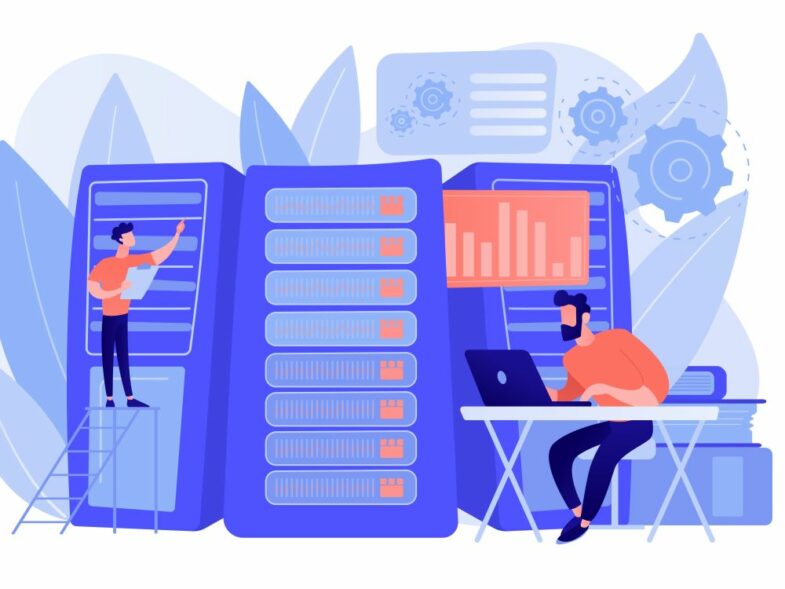Artificial Intelligence (AI) is rapidly changing how small businesses manage their budgets. With AI, businesses can now make smarter, more accurate financial decisions. It helps in analyzing costs, predicting trends, and even preventing overspending. This is especially true as this technology advances and new use cases and capabilities are uncovered.
For small businesses who often have tight budgets, these innovations are truly changing the game. AI efficiently takes on tasks that once required time and a lot of manpower, reduces biases and errors, and can guide small businesses towards better financial health. Let’s find out more of the power of AI for small business budgeting below.
Automating Repetitive Tasks
One of AI’s most appreciated qualities is its ability to handle repetitive tasks without error. In financial scenarios, this can be a real game changer.
Just think about how budgeting often involves routine tasks like tracking expenses and monitoring cash flow. AI tools can automate these processes, saving time and reducing human error.
For instance, an AI-powered software can automatically categorize expenses and alert you of any anomalies. This means less time spent on manual entries and more accurate financial statements. When using these tools, businesses can then focus on big-picture financial strategy instead of getting bogged down in the details!
More Precise Estimates
AI provides more accurate estimates by analyzing vast amounts of data quickly and efficiently. This is essential for every stage of business operations: precise estimates help manage clients expectations, control costs of materials and functions like marketing, and regulate cash flow through season-related changes.
In construction, for example, tools that offer a roofing estimate solution can swiftly calculate the cost of materials, helping both companies and clients budget accurately. This tool can predict costs by assessing historical data and current market trends.
While this example showcases the capabilities of AI at a glance, small businesses in most sectors can use these tools to forecast sales and budget more accurately than ever and minimize the risk of under or over-budgeting.
Predicting Financial Trends
By sifting through historical data and highlighting clear trends, AI can predict future financial scenarios and provide business owners and professionals with accurate, timely, and easy-to-understand data—which can be used for decision-making!
For instance, utilizing AI to anticipate seasonal trends can help businesses and creative professionals prepare their budgets in advance. It can tell when to stock up on inventory or when to scale down. Additionally, AI can warn business owners about potential financial downturns, giving companies time to adjust their strategies and get ready to navigate what’s ahead with confidence.
Enhancing Cost Analysis
Accurate cost analysis is a crucial aspect of effective budgeting. After all, without knowing how much your business will spend, or how the cost of materials and labor changes over time, it is impossible to adjust your pricing strategy and remain profitable.
AI assists by digging deeper into financial data than any human could. A restaurant, for example, might use AI to analyze daily sales data to determine the most cost-effective menu items. By knowing what sells best and when, the restaurant can adjust its budgeting strategy to buy ingredients more efficiently.
This level of detailed analysis helps businesses cut unnecessary expenses and allocate resources smartly, which, in turn, leads to a much healthier bottom line.
Improving Cash Flow Management
AI tools are game-changers when it comes to managing cash flow. They analyze transactional data from a wide range of sources—including online and physical points-of-sale—to provide insights into inflows and outflows of cash.
This can also help with client or supplier management! For instance, AI can identify trends in late payments from clients and suggest corrective measures. With this information at hand, businesses can then adjust their billing processes or implement stricter credit terms.
Put it this way: gaining greater visibility into the dynamics that impact your cash flow means that you can better balance their books and avoid potential liquidity problems.
Reducing Human Bias in Financial Decisions
AI’s objective data analysis reduces human cognitive biases, which can influence several aspects of the decision-making process. For example, a business owner might favor one supplier over another without solid economic reasoning. This can lead to unnecessary overspending, affecting budgeting and cash flow.
Here, AI systems are capable of evaluating supplier options purely on cost, reliability, and other quantifiable factors. This ensures businesses make choices that are financially sound, leaving no room for personal bias. Of course, personal relationships matter, but AI can offer a more objective viewpoint that can guide your rapport with your clients, suppliers, and competitors!
Bottom Line: Tapping Into AI for Financial Success
AI is undeniably revolutionizing how small businesses approach budgeting. It provides more accurate forecasts, reduces time spent on repetitive tasks, and ensures cost-efficient decisions.
By integrating AI into your financial strategies, your business can gain a competitive edge, taking a step toward stability and growth. Embracing AI means not just keeping pace with technological change but ensuring a financially sound future. For small businesses, the time to harness AI’s power is now!









